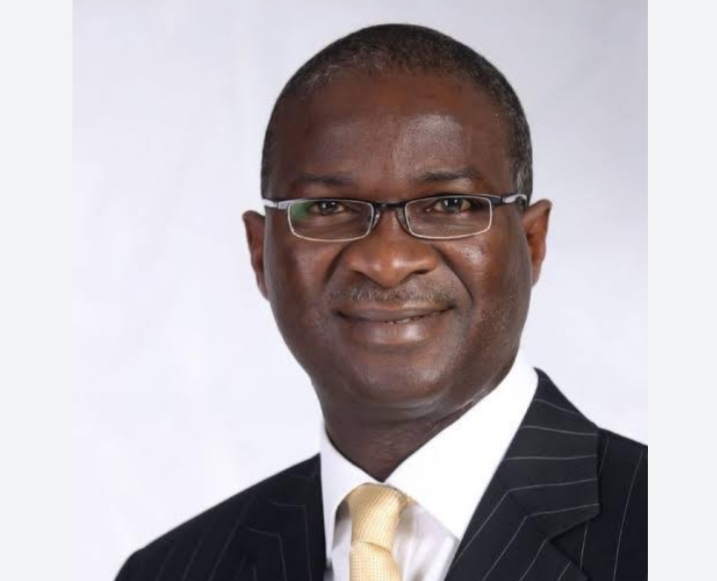Babatunde Raji Fashola Biography | Age | Education | Wife | Children | Net Worth

Babatunde Raji Fashola, a Senior Advocate of Nigeria (SAN), is the Nigerian Minister of Work and Housing.
He was also Governor of Lagos State from 2007 to 2015, serving two terms in office.
Biography
Babatunde Fashola was born in Lagos on June 28, 1963, at Island Maternity Hospital. His parents were Olufunke Agunbiade, a nurse, and Ademola Fashola, who had previously worked as a journalist for the Daily Times of Nigeria.
He has 12 siblings.
He began his studies at Sunny Field Primary School, Adelabu Street, Surulere, Lagos.
He attended Birch Freeman High School in Lagos and Igbobi College, Yaba, where he obtained his West African Senior School Certificate.
He earned his first law degree from the University of Benin in 1987, and in November of that same year, he was admitted to the bar.
Career
He was admitted to the Nigerian Bar in November 1988 and appointed a solicitor and advocate of the Supreme Court of Nigeria. He began his career at Sofunde, Belgore, and Co. as a litigator with various specialisations.
In 2004, he was appointed Senior Advocate of Nigeria (SAN) for his outstanding career. He was the first graduate of the 1988 Law School and the second law school graduate from the University of Benin to receive the honour.
Governor
On April 14, 2007, Fashola succeeded Tinubu as Governor of Lagos State on the platform of the Action Congress. The Action Congress and other parties merged and formed the All Progressives Congress.
Fashola won a second term on April 26, 2011.
Achievements
Fashola concentrated on repairing Lagos’ infrastructure, which was ignored after Abuja became Nigeria’s new federal capital in 1991. He continued Tinubu’s plan for Lagos, modernising the state at a rapid pace.
The project’s implementation encompassed both the public and commercial sectors.
Bus Rapid Transit (BRT) vehicles with air conditioning were introduced under Fashola, and special lanes were built for them.
The first two lines of the Lagos Light Rail commuter rail, which was started by Fashola and is expected to be completed in the fourth quarter of 2022, are now under construction.
As soon as he assumed office, Fashola started significantly reconstructing the city’s principal thoroughfares. Major rehabilitation projects were underway simultaneously all over Lagos.
As a result, Lagos was well transformed during his first tenure as governor. Numerous significant roadways have undergone remodelling and painting. Flyover bridges allowed for the opening of new highways. The outdated, decaying bridges were replaced with cutting-edge footbridges.
The Fashola administration also gave education a lot of emphasis. This included the return of uniformed volunteer administrators in the state’s public schools, the introduction of a salary scale for teachers in those schools, the creation of the Adopt a School Initiative, and other initiatives.
It also included the distribution of free textbooks, well-equipped workrooms and libraries, and buses for teachers and students to ease transportation. Some schools that were rehabilitated under Fashola’s watch include Ikotun Senior High School, Alimosho Girls High School, Agege Okemagba Junior High School, Mojoda Amuwo Senior Grammar School, and Tomia Community Secondary School, Alagbado.
He also achieved significant progress in rural areas with more than 110 rural development projects completed under the Rural Water Supply and Sanitation Structure. Also, 104 localities received modified Type A water systems from the Intervention Fund at the end of 2009. He also saw to the construction of contemporary abattoirs in Ologe, Oko-Oba, and Lairage.
Fashola’s administration also built Imude Road, Shibiri-Etegbin Road, Ajangbandi-Illogbo Road, Agboroko-Igbo Road, Elerin Road, Ariyo-Muyo-Tedi Oshun Road, and others to connect settlements. Under its rural intervention programme, the state government also completed 165 rural electrification projects.
The end of Nigeria’s official Ebola-free status in September 2014 marked the biggest achievement of Babatunde Raji Fashola’s second term as governor.
Infected US-Liberian citizen and ECOWAS diplomat Patrick Sawyerr brought the virus through Lagos airport three months earlier, causing the disease to first spread in Nigeria.
About 1,000 people were thought to have become sick since Patrick Sawyerr’s arrival, so he assumed charge of finding and isolating them. Fashola cut short his trip to Mecca to establish the Ebola Emergency Operations Centre to keep track of everyone who might be infected.
A team of 2,000 officials, who were specially prepared for the job knocked on 26,000 doors.
Fashola also visited an Ebola treatment facility to allay the fears of Nigerians.
Controversy
Naira Marley, a Nigerian hip-hop singer, and Babatunde Fashola were involved in a dispute in 2020.
The scandal started when individuals tried to connect inappropriate behaviour by the singer, who shares the same surname as the former governor, to Babatunde Fashola.
A private airline had flown Azeez Fashola (Naira Marley) and his crew while the Federal Government declared a lockdown over the COVID-19 pandemic. The airline said it mistook the singer for Babatunde Fashola hence their decision to go ahead with the flight.
Wife And Children
Babatunde Fashola and his wife, Emmanuella Abimbola Fashola, have two children.
Net worth
Babatunde Fashola is one of the richest politicians in Nigeria. His net worth is estimated at $3.5 million.













